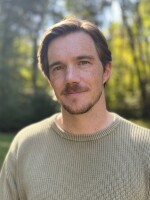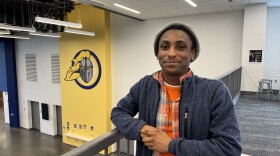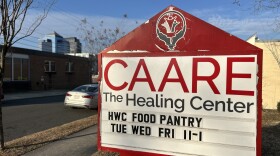We recently released a survey asking people about their experience with race in North Carolina. The responses ranged from personal stories on race's influence in daily interactions to how race is affecting public opinion. From the state's rural communities to its larger cities, people recognized that race relations are changing, but we still have a ways to go.
Here are some of the responses:
Lawrence Grier, 40+ years old, Durham
Michi Vojta, 44 years old, Raleigh
"As a mixed race person (mother from Japan), I can generally "pass", as it was called -- people don't often notice, or care, about my non-white heritage.
Years ago I visited a friend living in Columbia, NC. As a teacher she went to work and I hung out killing time and went for a jog. I thought it was odd how there were two gas stations from the same exact company on the same road within spitting distance. I was telling her where I jogged, and she asked what I thought were odd questions: 'Did the folks seem surprised to see you?' I thought, 'Gosh, it can't be that small a town, right?'
Finally she pointed out that I jogged on both the 'white' and the 'black' sides of the town, and she was curious if folks acted strangely to me when I was on 'the other side.' I'm sure my mouth hit the ground. As someone who grew up in Memphis, TN and the suburbs of Chicago, IL, it had never crossed my mind that towns were still so clearly divided."
Khuwailah Beyah, 30+ years old, Durham
Stefany Ramos, 31, Durham
'When I watch the news, it is hard not to feel that things have been sliding backwards. It is hard not to feel terrified that one day that might be my son on the screen.'
"I am a white Hispanic female but my 'hispanic-ness' is much less physically obvious than many of my fellow Latinos. When people look at me they see an ethnically ambiguous white woman. In my life I rarely experience the type of racial discrimination felt by so many others. My husband is black and his experience directly contrasts my own. I have been with him while countless police cars follow his car for no apparent reason, especially in Chapel Hill.
I was with him when we were pulled over by a police officer, and subsequently sat very still as two more police cars and police dogs arrived. His record showed a lapse in insurance caused by confusion when he switched insurance companies. Is it routine for sniffing dogs to circle your car for insurance issues? And why did they run his plates to begin with? We violated no traffic laws.
I have been with him when people ask for his help in stores where he does not work. People in the Triangle are always shocked when they hear his stories where the general sense is that we are an open, more educated, and more liberal community. Sure, it's hard to find a confederate flag hanging outside a house around here, but that says very little about our true collective racial beliefs.
It does no good to hide behind our universities and "diverse" numbers on paper, and to pretend that the racial disparities that plague the rest of the state and country do not apply to us. We must be honest with each other, but most of all with ourselves. As my husband and I prepare for our first child, a boy, we hope that his world will be a little more just than the one we grew up in. Our world was a little more just than our parents'. But when I watch the news, it is hard not to feel that things have been sliding backwards. It is hard not to feel terrified that one day that might be my son on the screen."
Elizabeth Vanek, 23, Raleigh
"In 2004, I moved to Charlotte from Nashville, TN. On my first day of seventh grade I realized I was the only white person in my class. In Nashville I had people of color in my classes but white students were the majority. I had to adapt quickly to this new environment. For the first couple of weeks I was scared but I soon adjusted.
For the rest of my time in the public school in NC I was often not in the racial majority in the class room. These experiences of race in the public school showed the good, the bad and the ugly about race relations in NC. As a privileged white girl I had not understood the complicated world outside of my sheltered life at first. The diversity in the public school made me understand and wrestle with my privilege and the inequality of the races.
I am saddened when I hear about public schools becoming more racially divided with things like the 'white flight' to charter schools. While not an elegant way to learn about race, the public schools in NC taught me more than the math, reading and writing. They taught me about privilege, inequality and cultural differences. The public school system built a strong foundation for accepting others cultural and racial differences that stays with me to this day."










